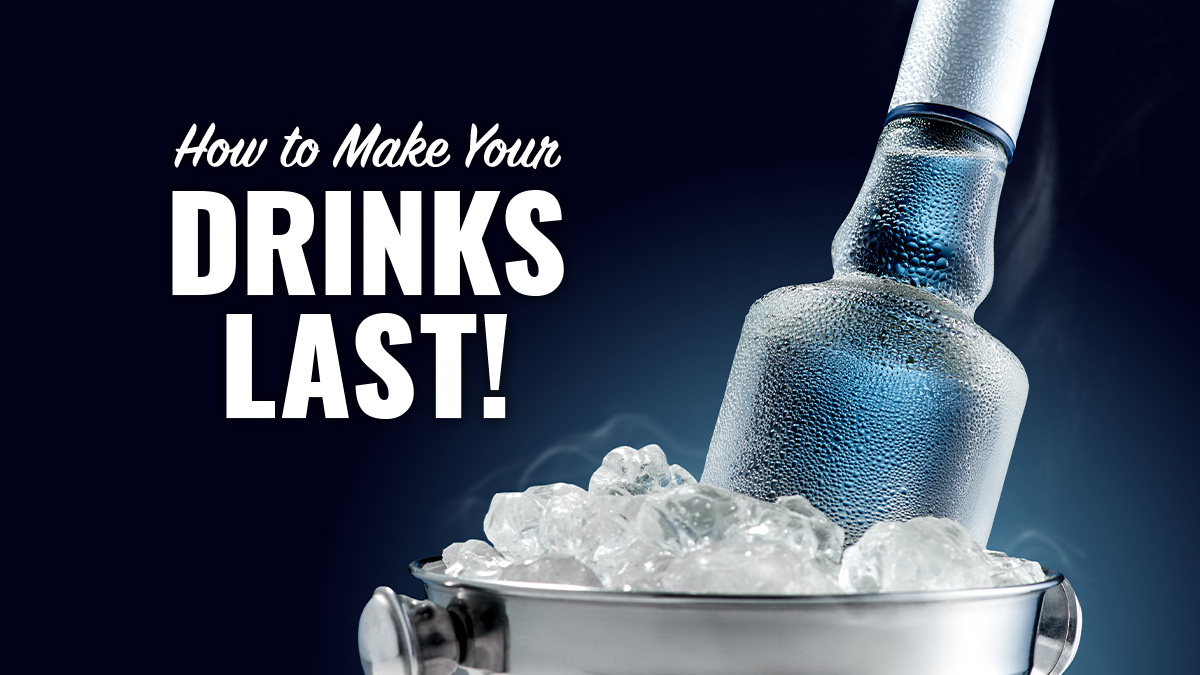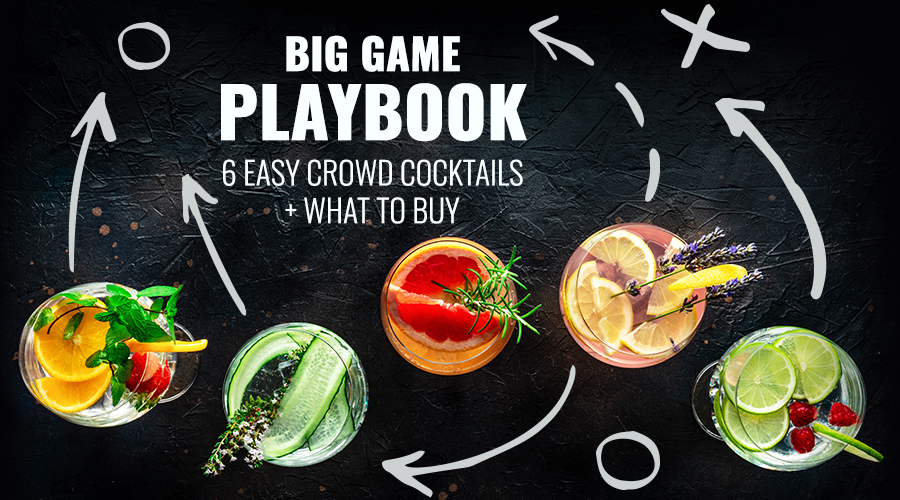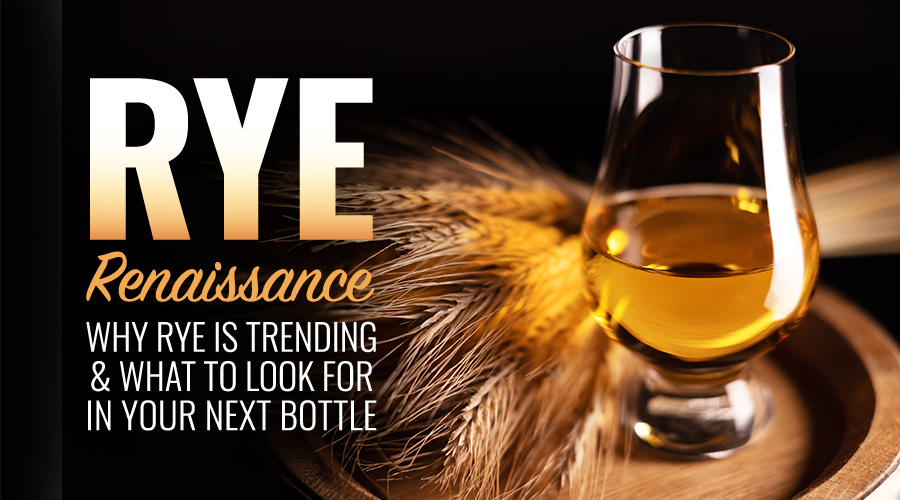
Does Alcohol Expire?
We all have that one. That one bottle or can that’s been with us for quite some time. Perhaps it’s a bottle of Champagne you bought for a bridal shower that no one got to. Or the last can from a limited-edition beer that’s been chilling in the fridge. Or maybe it’s that the bourbon you’re waiting for just the right reason to open. Whichever one is your one, you can’t help but to wonder about its shelf life.
So it leads us to the big question. Does alcohol expire? And the answer is yes. Yes it does. If the alcohol has been opened.
More accurately, your liquor may lose its flavor, potency, and coloring over time once it has been opened. This is because opened liquor is at risk of evaporation and oxidation, which can alter the flavor.
How Long Do Different Types of Liquor Last Once Opened?
Now that we know that your alcohol can go bad after a certain point, it’s time to figure out the lifespan of your opened liquor. The best way to determine this is based of the type of liquor and how it’s stored.
Distilled Spirits
All distilled spirits share similar chemical makeup, so they should age at about the same rate. So it doesn’t matter if it’s whiskey, gin or vodka, all should last about one to three years after opening. Although, they might start tasting bad or off at different times. We have heard some speculation that “white” spirits, like vodka and gin, are less susceptible to the changes that create bad tastes. This could also be due to the fact that many “brown” barrel-aged spirits, like whiskey or rum, spend years resting before being bottled. Meaning they have already been subjected to oxidation.
Liqueurs
For liqueurs, thanks to their added ingredients such as dairy and sweeteners, should last for about six months to a year after opening. Their sugars acts as a preservative that prevents microbial growth which could spoil the drink. If you have a heavily-sweetened liqueur, watch out for a build up of crystalized sugar around the opening of the bottle under the cap. Wipe down the bottle with a warm, wet towel after use to prevent the cap from getting stuck and to create a proper seal.
Vermouth and Wine-Based Spirits
Ever have a Manhattan that was slightly sour or a Martini that tasted a bit musty? That’s because the vermouth went bad. That’s because wine-based liquors like vermouths and vino amari have a relatively short shelf life. While they’re fine being stored at room temperature until they’re open, they need to be refrigerated and used within six to eight weeks once they’re open.

How Long Does Different Types of Liquor Last If It’s Not Open?
Now, we come to the unopened bottles. This is good because usually an unopened liquor like gin, rum, whiskey, vodka, tequila, and other non-sweetened drinks will keep indefinitely. Just as long as it’s properly stored at room-temperature, tightly sealed, and stays away from direct sunlight.
Now that these bottles are unopened and are going to stick around for a while, let’s keep in mind that it’s a bad idea to store liquor bottles on their side. Unlike wine and Champagne, hard liquor will eat away at the cork. This will allow air to enter the bottle, causing the alcohol to evaporate more rapidly. If you want to try and preserve a bottle with a natural cork, turn the bottle over and wet the cork for about 60 seconds once a year to prevent it from drying out.
Do Beer & Wine Expire?
You’d think since they’re made with hops and grapes, beer and wine would expire just like their ingredients. However, this is not the case as their alcohol content means they don’t expire the way we think they would and prevents them from being unsafe to drink. They would just taste bad.
Beer
Beer can go stale and change its flavor over time when exposed to light, oxygen, and heat. While it may taste unpleasant, it is still safe to drink.
Wondering if your beer has gone bad? Be on the lookout for any skunky smell or taste, a sweet and bready taste, a lack of hoppy smell, or the beer being flat. An unpasteurized beer has a shelf life of roughly three months, while a pasteurized, sealed beer, if stored properly in a fridge, can hold its flavor for about a year.
Wine
Generally wine improves with age. It’s why we have the phrase “aged like a fine wine”. The key word in that phrase is fine as most wines aren’t classified as “fine” and should be consumed within a few years. Wine, like beer, expires to exposure to light, heat, and vibrations which break down its flavors and aroma. You can store wine in a fridge if the alcohol content is less than 20% and you plan on consuming it within a couple of weeks.
If unopened, a bottle of traditional white wine can last anywhere from one to two years past their recommended drinking window. An unopened bottle of red wine can last about two to three years, and cooking wine can last between three and five years. Fortunately, fine wines can last decades past their recommended drinking window before they go bad.

So What Now?
Now that you know if alcohol expires and how to properly store it, it may be time to look at the drinks you have. For all your unopened bottles, make sure they’re properly sealed and in a place where light and air can’t get to them. For all your opened bottles, ask yourself how long have you had them. If you’re not sure, give them a sniff. If they smell bad, then it’s ok to pour them out. No one should drink a bad drink. And if you need to replenish what you’ve poured out, Spec’s will be right here for you with a bottle that’s ready to take its place.




